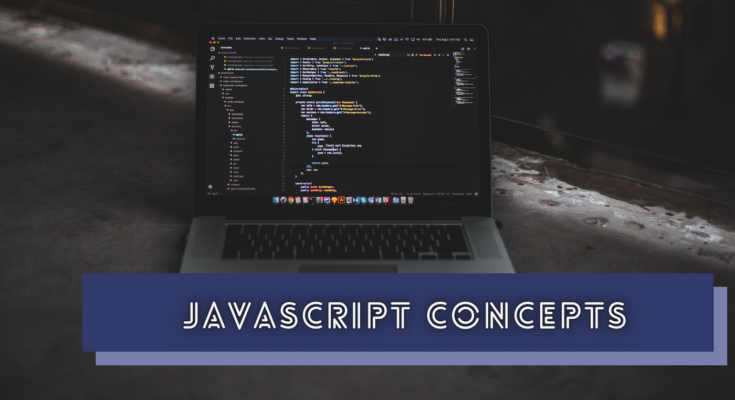JavaScript has become the backbone of modern web development, powering the dynamic and interactive elements that have become standard on today’s web. From small personal projects to large-scale enterprise applications, JavaScript plays a pivotal role in the development process. Mastering JavaScript fundamentals is not just about writing code; it’s about understanding the principles that underpin the language, enabling developers to create more efficient, effective, and maintainable code.
“Before you can master a device, you must be able to understand it.” This quote by Jaymin Shah highlights the essence of diving deep into JavaScript fundamentals.
As developers, our journey towards mastering JavaScript involves a continuous process of learning, unlearning, and relearning as the language evolves and as our understanding deepens.
Understanding the Basics
Introduction to JavaScript
JavaScript was created to make web pages alive. Its capabilities have grown from simple scripts to complex applications running in browsers and beyond. It’s a language that enables you to implement complex features on web pages, including interactive maps, animated 2D/3D graphics, scrolling video jukeboxes, etc.
Writing Your First JavaScript Code
Starting with JavaScript is as simple as writing a “Hello, World!” script. It’s a tradition in programming to make your first code in any language a simple output that says “Hello, World!” This rite of passage signifies the beginning of your journey into JavaScript.
Variables and Data Types
In JavaScript, variables are containers for storing data values. JavaScript uses var, let, and const to declare variables. Data types classify the different types of values a program can work with. The major ones include:
- Primitive types: Undefined, Null, Boolean, Number, String, Symbol (introduced in ES6), and BigInt (introduced in ES2020).
- Objects: Collections of properties.
Operators
JavaScript’s operators include arithmetic for basic math, comparison for testing conditions, logical for combining conditions, and assignment for assigning values. Understanding these operators is crucial for manipulating data and making decisions in your code.
Control Structures
Conditional Statements
Conditional statements like if, else, and switch allow your code to make decisions. These structures enable the execution of code blocks based on certain conditions, making your scripts dynamic and responsive.
Loops
Loops (for, while, do-while, for...in, for...of) are used to perform repetitive tasks. Understanding loops is key to navigating through arrays or objects, and performing operations on each item.
Error Handling with Try…Catch
Error handling in JavaScript is accomplished using try...catch statements. This mechanism allows you to catch runtime errors, providing an opportunity to handle them gracefully without crashing your application.
Functions and Scope
Defining Functions
Functions are one of the fundamental building blocks in JavaScript. They are defined blocks of code that can be executed whenever they are called. JavaScript provides function declarations, function expressions, and arrow functions, each with its syntax and use cases.
Function Scope
Understanding scope—global, local, and block—is crucial for managing where variables and functions can be accessed within your code. Closures are an important concept that allows a function to remember the environment in which it was created, even after that environment has been destroyed.
Higher-order Functions
JavaScript supports the concept of higher-order functions, which are functions that can take other functions as arguments or return them as results. This is a powerful feature that facilitates functional programming techniques, such as composing and piping functions.
Working with Arrays and Objects
Arrays
Arrays in JavaScript are used to store multiple values in a single variable. They come with a suite of methods like map, filter, reduce, and more, which are essential for manipulating and processing data stored in arrays.
Objects
Objects are collections of key-value pairs and are a fundamental aspect of JavaScript. They are used to store various keyed collections and more complex entities. Understanding how to create, access, and manipulate objects is crucial for effective JavaScript programming.
Asynchronous Programming
Asynchronous programming is a paradigm in JavaScript that allows code execution to proceed without waiting for previous operations to complete, making it possible to handle tasks such as data fetching, file reading, or any operation that relies on external sources where there’s a delay in response.
Event Loop and the Call Stack
JavaScript has a runtime model based on an “event loop,” which works with a call stack to execute code, collect and process events, and execute queued sub-tasks. This model allows JavaScript to perform non-blocking operations, essential for creating smooth, responsive applications.
Callbacks
Callbacks are functions passed as arguments to another function, which are then invoked to complete some kind of routine or action. Initially, callbacks were the primary method for asynchronous operations in JavaScript. However, excessive use of callbacks can lead to “callback hell,” where code becomes deeply nested and difficult to read.
Promises
To address the pitfalls of callbacks, Promises were introduced, representing the eventual completion (or failure) of an asynchronous operation and its resulting value. Promises allow for cleaner, more readable asynchronous code and provide methods like .then(), .catch(), and .finally() for chaining operations.
Read Also: Data Science: Unraveling the Mysteries of Big Data
Conclusion
In conclusion, mastering the fundamentals of JavaScript is an essential step for any developer aiming to excel in the web development landscape. JavaScript’s ubiquity across the internet underlines its importance, not just as a tool for adding interactivity to websites, but as a powerful language capable of building complex applications, both on the client and server sides.
From understanding the basics of variables, data types, and operators to grasping more complex concepts such as asynchronous programming, the Document Object Model (DOM), and best practices in debugging and writing clean code, the journey through JavaScript’s fundamentals is both challenging and rewarding. Each concept builds upon the last, forming a foundation that not only supports learning more advanced topics and frameworks but also empowers developers to solve real-world problems creatively and efficiently.
FAQs
Q: How long does it take to master JavaScript fundamentals?
A: The time it takes to master JavaScript fundamentals varies depending on your background, the time you dedicate to learning, and how you apply what you’ve learned. Generally, a few months of consistent study and practice can build a solid foundation.
Q: Can I learn JavaScript without any programming experience?
A: Yes, JavaScript can be your first programming language. It requires patience and practice, but with the wealth of resources available, beginners can effectively learn and apply JavaScript fundamentals.
Q: Are frameworks necessary to learn at the beginning?
A: It’s recommended to master JavaScript fundamentals before diving into frameworks. Understanding the core language will make it easier to learn and understand any JavaScript framework or library.
Q: How important is it to understand asynchronous programming in JavaScript?
A: Asynchronous programming is crucial in JavaScript, especially for web development, as it deals with operations such as fetching data from a server. Understanding callbacks, promises, and async/await is essential for modern JavaScript development.




